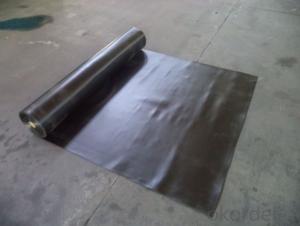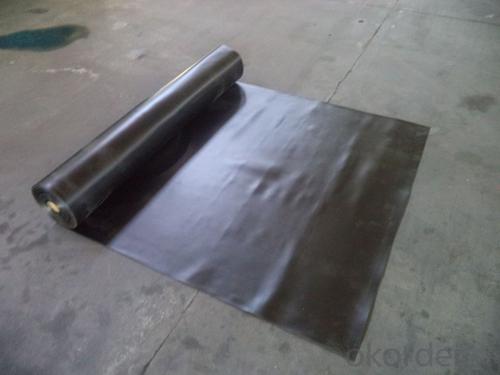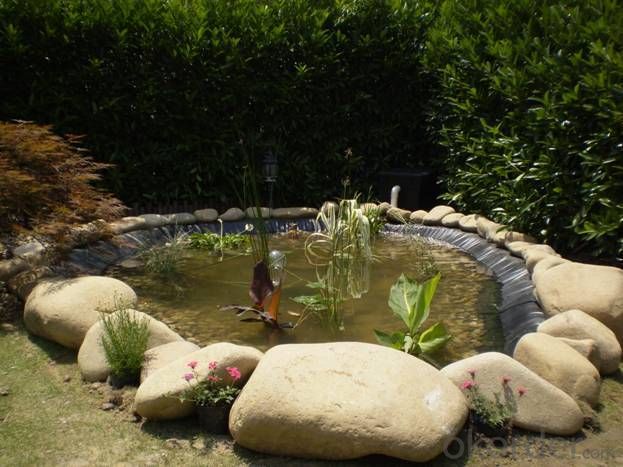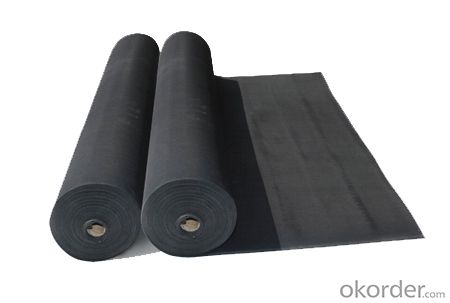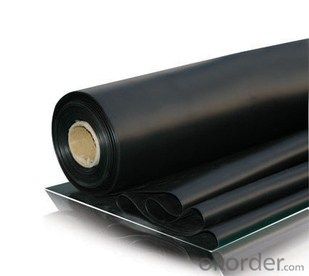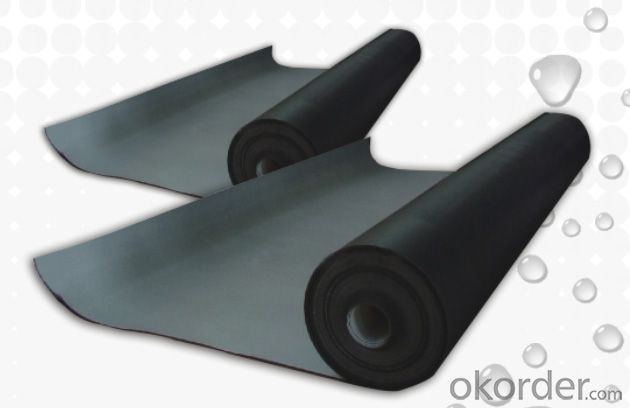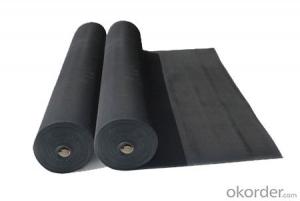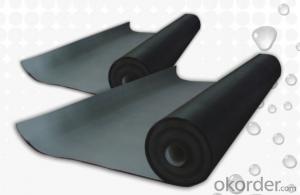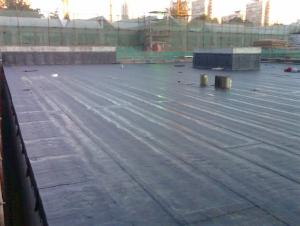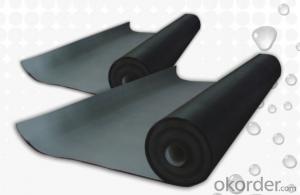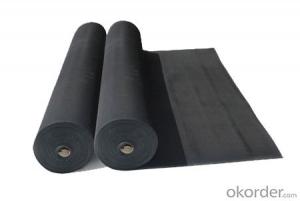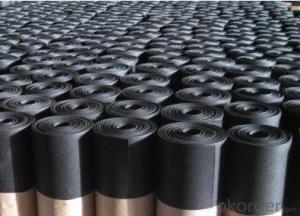EPDM Coiled Waterproof Membrane with 1.8mm Thickness
- Loading Port:
- Shanghai
- Payment Terms:
- TT OR LC
- Min Order Qty:
- 50000 m²
- Supply Capability:
- 5000000 m²/month
OKorder Service Pledge
OKorder Financial Service
You Might Also Like
EPDM Coiled Waterproof Membrane with 1.8mm Thickness
Description Of EPDM Coiled Waterproof Membrane with 1.8mm Thickness:
1. Excellent physical and mechanical performance, high tearing resistance;good deformation adaptability, high puncture resistance;
2. High aging resistance, high UV resistance, anti-acid & alkali;
3. Excellent low & high temperature resistance, innocuous, long life span;
4. Perfect water proof performance, seepage and humidity resistance.
Main Features of EPDM Coiled Waterproof Membrane with 1.8mm Thickness:
A.Polyester based SBS Modified Bitumen Waterproofing Membrane
a. Strong impermeability
b. High tensile strength, elongation, ability to adapt the grassroots shrinkage deformation and cracking
c. Puncture-resistant, broken resistant, tear-resistant
d. The corrosion resistance, resistance to mildew, weathering good
e. Construction convenient, hot-melt can be operated Four Seasons Construction, reliable joints
B. Fiberglass based SBS Modified Bitumen Waterproofing Membrane
a. High tensile strength, stability of a good size
b. High Temperature good performance
c. Damage resistance, corrosion resistance, resistance to mildew, weathering good performance
d. Good construction performance, reliable joints.
Specifications of EPDM Coiled Waterproof Membrane with 1.8mm Thickness:
| Material | EPDM Rubber |
| Size | 1.2m (width)*20m (length) or customized, weldable type 2.05m or 4m width |
| Thick | 1.2mm, 1.5mm, 2.0mm |
| Type | Vulcanized & Weldable |
| Pattern | Non-reinforced (homogeneous) |
| Certificate | ISO9001/14001 |
Applications of EPDM Coiled Waterproof Membrane with 1.8mm Thickness:
geomembrane used in groundsill of road, highway, railway and waterproof layer of swelling clay and wet collapsed loess.Geomembrane can be widely used in areas of garbage burying, waste disposal and underground construction projects.such as below:
- aquaculture ponds
- Ouchi root barrier membrane
- Floating baffles;
- Process wastewater
- Stormwater impoundments;
- Secondary containment;
- Spill containment
- Manure and biogas tanks and covers
- Potable water tanks and covers;
- Sludge Drying beds;
- Bioremediation covers & liners;
- Leachate ponds
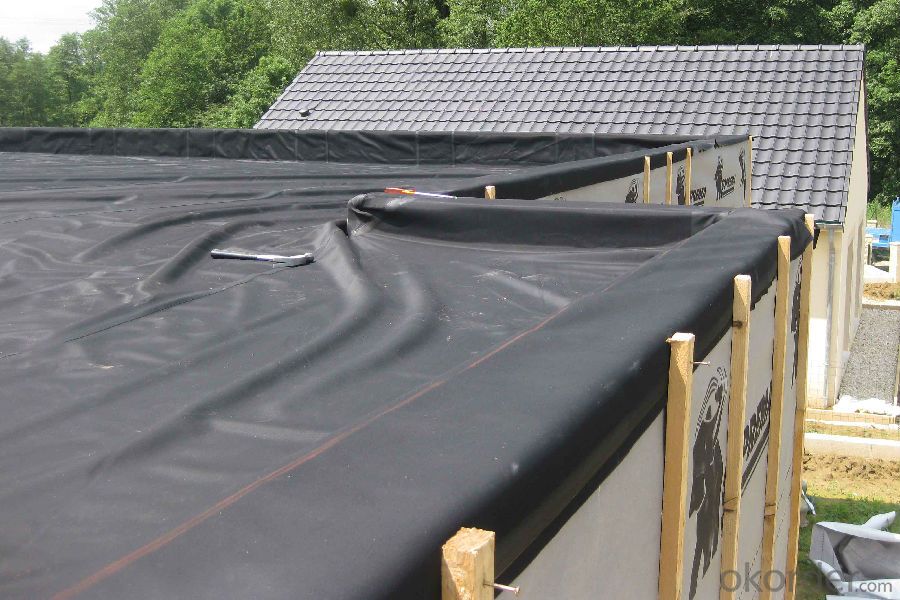
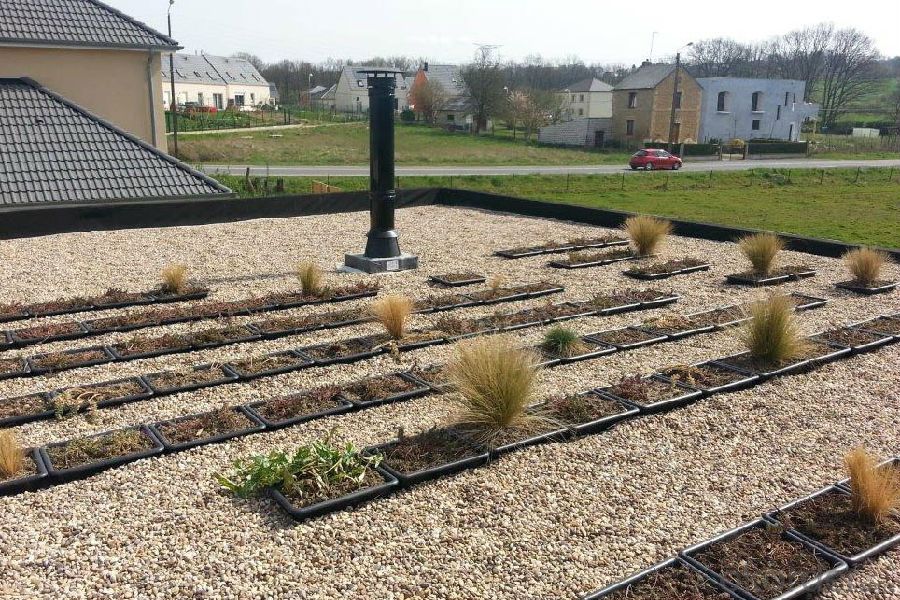
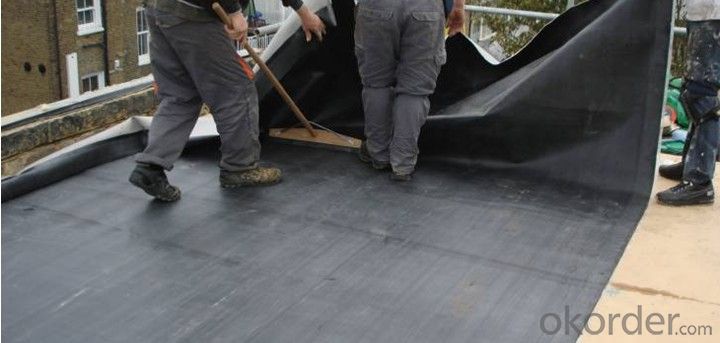
IMages of EPDM Coiled Waterproof Membrane with 1.8mm Thickness:
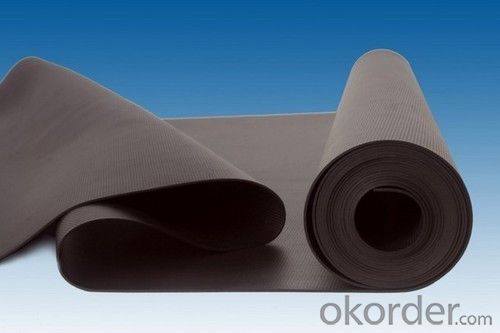
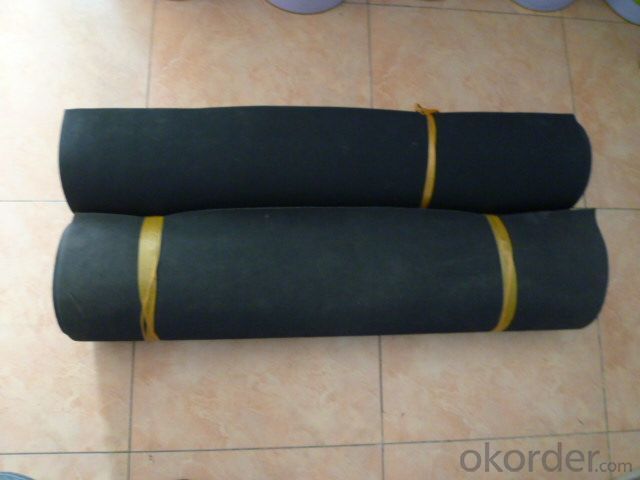
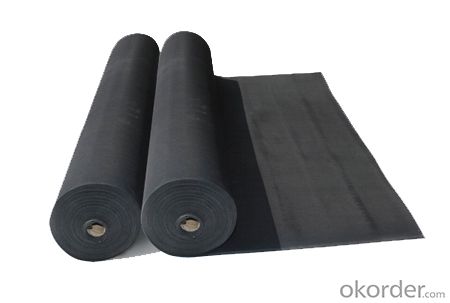
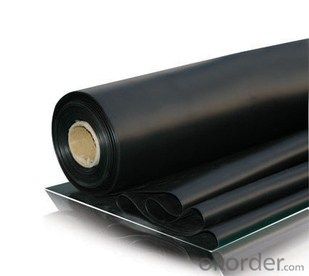
FAQ of EPDM Coiled Waterproof Membrane with 1.8mm Thickness:
1. What are we supplying?
We are specialized in producing Colorful Asphalt Roof Shingle, SBS/APP modified bitumen waterproof membrane, Self adhesive bitumen waterproof membrane, PVC waterproofing membrane, EPDM rubber roofing membrane, Single Component Polyurethane Waterproof Coating, and Spray Polyurea Waterproof Coating
.
2. How Many years experience do we have?
We have been exported to more than 20 countries in the past 15 years.
3. How long do we usually reply your request?
We always reply our customer within 24 hours.
- Q: Is a waterproofing membrane resistant to mold and mildew growth?
- Yes, a waterproofing membrane is resistant to mold and mildew growth. This is because waterproofing membranes are specifically designed to create a barrier against moisture, preventing water from seeping through and causing mold and mildew to grow. By effectively sealing off the area, these membranes eliminate the conditions necessary for mold and mildew to thrive, such as dampness and moisture. However, it is important to note that while the membrane itself is resistant to mold and mildew growth, it does not guarantee complete protection against these issues. Proper installation, regular maintenance, and ensuring proper ventilation are also crucial in preventing mold and mildew growth in the long term.
- Q: On the roof of the waterproofing membrane paving the direction of what are the requirements
- ?For the vibration of the roof, such as the use of parallel roof ridge direction asphalt waterproofing membrane, under the influence of vibration, easy to slip the membrane waterproof layer. And therefore should be vertical roof ridge direction. But the high strength of synthetic polymer film can not be limited.
- Q: Can a waterproofing membrane be used on wood surfaces?
- Indeed, wood surfaces can benefit from the application of a waterproofing membrane. These membranes are specifically engineered to form a barricade against water infiltration, effectively safeguarding the surface they are applied on. While their typical usage involves concrete or masonry surfaces, they can also be utilized on wood surfaces to shield them from moisture-induced harm. By employing a waterproofing membrane on wood surfaces, the absorption of water can be curtailed, thus preventing potential issues such as rot, warping, or decay. It is crucial to select a waterproofing membrane that is specifically tailored for wood, as it will furnish the necessary protection while allowing the wood to breathe and maintain its innate characteristics.
- Q: Can waterproofing membranes be used on concrete fountains?
- Yes, waterproofing membranes can be used on concrete fountains. Concrete fountains are often exposed to water and can be prone to leaks and moisture damage. Applying a waterproofing membrane to the concrete surface helps to create a barrier that prevents water penetration and protects the fountain structure. Waterproofing membranes are designed to be flexible, durable, and resistant to water, making them an ideal solution for concrete fountains. They can be applied to the interior and exterior surfaces of the fountain, ensuring complete protection against water damage. By using waterproofing membranes, the lifespan of the concrete fountain can be extended, and maintenance costs can be reduced.
- Q: Can a waterproofing membrane be used for foundation waterproofing?
- Yes, a waterproofing membrane can be used for foundation waterproofing. A waterproofing membrane is a thin layer of material that is designed to prevent water from penetrating the foundation walls. It is typically made of a flexible material such as rubber or plastic, and is applied to the exterior of the foundation. The membrane acts as a barrier, preventing water from seeping into the foundation and causing damage. It is installed by applying a layer of adhesive to the foundation walls, and then rolling the membrane onto the adhesive. The seams of the membrane are typically sealed with a special tape or adhesive to ensure a watertight seal. Using a waterproofing membrane for foundation waterproofing is an effective way to protect the foundation from water damage. It helps to prevent issues such as leaks, cracks, mold growth, and structural damage that can result from water infiltration. It is important to note that while a waterproofing membrane is a valuable component of foundation waterproofing, it is not the only measure that should be taken. Proper drainage, grading, and foundation construction are also important factors in preventing water damage. Therefore, it is recommended to consult with a professional to determine the best combination of waterproofing methods for your specific foundation.
- Q: Are waterproofing membranes resistant to diesel fuel?
- Yes, waterproofing membranes are generally resistant to diesel fuel.
- Q: Can a waterproofing membrane be used in conjunction with roofing materials?
- Yes, a waterproofing membrane can be used in conjunction with roofing materials. In fact, it is commonly used to provide an additional layer of protection against water infiltration and to enhance the overall waterproofing capabilities of the roof.
- Q: Are waterproofing membranes resistant to chemicals?
- Yes, waterproofing membranes are generally resistant to chemicals. These membranes are designed to provide a protective barrier against water infiltration and are typically made from materials such as PVC, TPO, or EPDM which have excellent chemical resistance properties. They are specifically engineered to withstand exposure to various chemicals, including acids, alkalis, solvents, and oils, without deteriorating or being damaged. This chemical resistance ensures that waterproofing membranes can maintain their integrity and effectiveness in environments where chemical exposure is common, such as industrial settings, laboratories, or chemical storage areas. However, it is important to note that the specific chemical resistance capabilities can vary depending on the type and quality of the waterproofing membrane, so it is crucial to choose the appropriate membrane that suits the specific chemical exposure requirements of the project.
- Q: Can a waterproofing membrane be used on stainless steel surfaces?
- Yes, a waterproofing membrane can be used on stainless steel surfaces. Stainless steel is a durable and non-corrosive material that is commonly used in various industries. However, it is not completely immune to water damage or corrosion, especially in harsh environments. Applying a waterproofing membrane on stainless steel surfaces can provide an additional layer of protection against moisture, preventing potential water damage, rusting, and corrosion. It is important to ensure that the waterproofing membrane is compatible with stainless steel and applied correctly to ensure proper adhesion and long-lasting protection.
- Q: Can waterproofing membranes be used on loading docks?
- Yes, waterproofing membranes can be used on loading docks. Waterproofing membranes are commonly used in various construction projects to prevent water infiltration and protect the underlying structure. Since loading docks are exposed to rain, snow, and other weather conditions, applying a waterproofing membrane can help to keep the dock area dry and prevent water damage.
Send your message to us
EPDM Coiled Waterproof Membrane with 1.8mm Thickness
- Loading Port:
- Shanghai
- Payment Terms:
- TT OR LC
- Min Order Qty:
- 50000 m²
- Supply Capability:
- 5000000 m²/month
OKorder Service Pledge
OKorder Financial Service
Similar products
Hot products
Hot Searches
Related keywords
